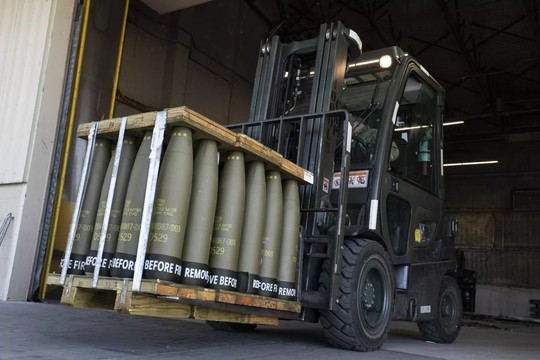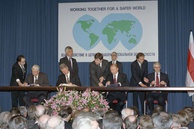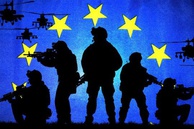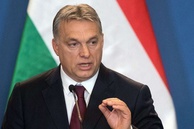PROVIDING aid to other countries has always been an aspect of international relations. Amid the intensified struggle of neocolonialism and independent development on the global stage, Russia is facing new major challenges in the area of foreign aid, which, as former Italian Foreign Minister Franco Frattini noted, “has become an increasingly expanding component of the foreign policy of states in determining not only their mutual relations, but also the entire balance of the international system.”1
In various periods of its history, Russia has been both a provider and a recipient of foreign aid. During the Soviet era, the concept of foreign aid included its provision as a fulfillment of the international duty of supporting the struggle for people’s democracy, socialism, and national liberation. Soviet Russia, abandoning the tsarist treaties and agreements after the October Revolution, provided international aid to other countries. One of its first recipients after 1917 was China.
International aid was understood as support for progressive social transformation, anti-imperialist and national liberation struggles and for the parties and movements involved, as well as assistance in defending socialist development from external threats and internal reactions.
Since the second half of the 20th century, foreign aid has turned into a global tool of influence and an effective means of implementing the foreign policy goals of states and the activities of international organizations. The World Bank estimated the volume of international aid at $157 billion,2 but taking into account military aid, especially the multi-billion dollar supplies of arms and ammunition to Ukraine by the countries of the collective West, this figure would have to be significantly increased, most likely at least doubled.
The increasing complexity of global challenges and international relations makes it necessary to achieve broad equitable development cooperation among countries. This requires providing assistance to those who need it. In practice, however, aid is selectively provided based on the political, economic, and other interests of donors in recipients. Interest can be shaped by expectations of benefits, access to resources, and the utilization of geopolitical and other advantages that may result from the provision of aid under certain conditions.
Western aid is sometimes imposed, although it should only be provided based on the consent, appeal, or request of the legitimate government of the recipient state. The imposition of foreign aid, especially military aid through the supply of weapons, ammunition, and troops, has usually resulted in negative consequences for recipient countries, as evidenced by the examples of so-called “aid” of the US and other Western countries to Afghanistan, Iraq, Libya, Syria, and now Ukraine. Such foreign “aid” violates the foundations of statehood in recipient countries, subordinates them to external control, and makes them weaker and more dependent.
The ruling elites of the countries that have been placed under foreign administration are corrupted and turned into a criminal community far removed from the interests of the people and guided solely by its own interests. Foreign aid becomes a kind of curse for the recipient country, corrupting governments and forcing them to carry out slavish reforms instead of necessary economic and social changes.
Grants are the main form of financial support. So-called privilege loans, or loans on favorable terms at lower interest rates, are provided. However, as a rule, the aid provided by Western countries and the international organizations controlled by them is conditioned by the recipient’s obligation to spend the received funds in the interests of and in accordance with the donor’s instructions, and, most importantly, to be loyal and follow the lead of Western policy. Such foreign aid is designated as conditional aid – officially through fixed contractual obligations and unofficially through the subordination and alignment of local corrupt elites to obey the Western master. Conditional aid does not permit the recipient country to make any choices that would allow it to buy and build at the most favorable prices and conditions. Everything has already been decided for it by the donor state or international financial institution.
In his book Confessions of an Economic Hit Man, American author John Perkins, who has functioned in this capacity for years, revealed how this happens in practice. He explains: “Economic hit men (EHMs) are highly paid professionals who cheat countries around the globe out of trillions of dollars. They funnel money from the World Bank, the US Agency for International Development (USAID), and other foreign ‘aid’ organizations into the coffers of huge corporations and the pockets of a few wealthy families who control the planet’s natural resources. Their tools include fraudulent financial reports, rigged elections, payoffs, extortion, sex, and murder.”3
After the collapse of the Soviet Union, thanks to the disappearance from the world arena of its global geopolitical rival and, together with it, the global socialist system with the ruble as a means of international settlement, the US used the new opportunities that opened up as a result to expand the use of the dollar as the world’s reserve currency. This allowed the US to significantly strengthen its control over the world’s main financial flows and international credit organizations, as well as to globally increase the share of US aid amid conditions when Russia, which in the early 1990s was oriented toward the West, itself became a recipient of foreign humanitarian aid and sharply reduced its cooperation with developing countries.
When Russia stopped following the lead of another country’s policy and started to pursue a course of independent development, it was met with sharp opposition from the West, which aggravated relations in the sphere of foreign aid, making it even more politicized. The US, using the designation “democratic” as a marker of loyalty and obedience to US foreign policy, conditioned aid to needy countries on their belonging to the “democratic” camp. At the same time, the US did not hesitate to apply that label to outright criminal regimes.
The Kiev clique currently holds a special place among such regimes. It is precisely this clique that, having expressed its readiness to fight alongside the West against Russia “to the last Ukrainian,” first, received the largest foreign military and financial aid for this purpose from the US and its allies and, second, distinguished itself by mass shameless atrocities against its own population and the Russian people, which its donors have preferred to ignore. In less than a year since the start of Russia’s Special Military Operation in Ukraine, as of January 2023, the Kiev regime has received more than $150.8 billion in foreign aid from more than 20 countries, four international organizations, and donor conferences. Foreign aid to Ukraine is 2.7 times higher than its budget.4 To date, the volume of Western aid to Ukraine has increased even more.
Amid the confrontation, the West began to actively use foreign scientific and technical assistance (STA) as a foreign policy tool. It was blocked to certain countries in order to exert pressure and was provided to those acting in the interests of the US and its allies. STA was weaponized when the pro-Western party to the conflict received observation data from military satellites, military technology, and specialized skills, including through the training of military contingents, whether by foreign instructors in the recipient country or in the donor state.
Humanitarian aid (HA), previously interpreted in the West mainly as assistance in the context of natural, anthropogenic, social, environmental, and other disasters, began to be provided during a conflict as cultural, moral, and symbolic support for the recipient country; as mobilization of world public opinion in its favor; and for denigration of the opponent. With regard to Ukraine, the West has spent a lot of money and effort to make sure any action in its favor – from the display of Ukrainian flags to the welcoming of Ukrainians who have fled abroad – was consistent with “Western values.” The “humanitarian aid” provided in this way is aimed at effectively cutting off unwanted questions from the public – for example, about Nazism and flagrant violations of human rights in “independent” Ukraine and serving as an effective tool for shaping in the public consciousness the foreign policy perceptions imposed by the Western ruling circles.
It makes a lot of sense for the US to continue to support the war in Ukraine indefinitely, hoping to defeat Russia by someone else’s hands and get to its wealth while making a huge profit by selling junk weapons and forcing allies to participate in military aid and then replenish their arsenals with expensive American weapons. Simultaneously, the key goal is being achieved of weakening Western Europe as a competitor and luring its companies to the US with cheaper energy and favorable production conditions. And all this is being achieved by a shameless American game on the field of foreign assistance and its opposite in the form of sanctions and bans not only against Russia and China, which are declared adversaries, but also allies, who are forced, figuratively speaking, to “shoot themselves in the foot,” should the overseas hegemon need that.
Remarkably, assistance from a donor state, such as the US nuclear umbrella that provides security to its allies, is based within the community of Western countries on essentially the same approaches that are applied to recipients in the developing world. In advancing its interests, the US, by right of might, has never hesitated to tread upon the interests of its allies and partners whenever its own interests are at stake. At the same time, it has never missed an opportunity to use the theme of solidarity to draw the countries in its sphere of influence into US “aid” and force them to bear some of the costs.
The Americans have designed a large-scale geopolitical project to expand their influence in the world under the slogan of assistance to Ukraine in order to achieve several goals at once. First, to create a military conflict directly on Russia’s borders and achieve, using someone else’s hands, Russia’s radical weakening and, if possible, its destruction as an independent state. Second, to subjugate Europe and bind it even more closely to the US; to weaken the European Union and its leading states, primarily Germany, as economic competitors; to ensure, by appealing to solidarity, their participation in the military and financial aid to Ukraine; and to practically force them to pay America’s bills. Third, to lay the groundwork for the implementation of America’s plans for China along the lines of the Ukraine project in which Taiwan will be forced, using “aid,” to play the role of Ukraine. Fourth, to expand, through “aid,” the US presence and influence in the Indo-Pacific region and other areas of the world prioritized in the current US foreign policy concept.
However, we can say that the political aspect of foreign aid is almost always conditioned by the donor’s desire to expand its position and influence in the international arena. The economic aspect of foreign aid is determined by the goals of gaining access to markets and resources and ultimately achieving higher returns for the donor from the commodity money relations with its recipients. At the same time, the psychological aspect is actively exploited in providing foreign aid – when certain political goals are achieved through brainwashing and the creation of an atmosphere of compassion, as the West did with the [Ukraine] grain deal. Appealing to the emotions of the global community and promoting a narrative of the threat of famine in developing countries, the West took advantage of the arrangements and diverted grain to its ports, while only about 3% of the food resources exported under the deal were sent to those in need. There is also a cultural aspect to foreign aid, which refers to the promotion of the donor through its so-called “soft power,” or the attractiveness of the proposed projects, concepts, and models of development and lifestyle.
The institutionalization of the US government foreign aid system occurred in 1961, when the Foreign Assistance Act established the US Agency for International Development (USAID).5
Today, this system, which includes 26 agencies, is coordinated by the US foreign policy agency, the Department of State, which, together with USAID and the Departments of Defense, Agriculture, and Treasury, supplies about 90% of all funds and, most importantly, ensures aid delivery in accordance with US foreign policy priorities and goals.
Among Western countries, France seeks to act as the second donor after the US, stating that it views foreign aid as an act of solidarity, which is proclaimed as one of the basic principles of French foreign policy. In 2002, the Interministerial Committee for International Cooperation and Development,6 responsible for French foreign aid, established a “priority solidarity zone,” which included mainly former colonies and some other territories.7 These were countries that France wished to keep within its sphere of interest and influence through foreign aid.
Japan used to be one of the largest donors, too; it competed with France for the second place and at times even came first, ahead of the US, until it began sacrificing its own foreign policy priorities in favor of the ephemeral “unity” of Western policy under US leadership and losing its leadership in the field of foreign aid.
Japan provides foreign aid in accordance with the national policy for international development and cooperation, as stipulated in an official document of the Ministry of Foreign Affairs of Japan.8 Japan’s Official Development Assistance Charter, approved by the Japanese Cabinet in 1992, established the basic principles of these activities. These include a prohibition on any use of aid to advance military interests and a prohibition on aid to countries involved in international conflicts and those with a poor democratic and human rights record.9 These principles were flagrantly violated when Japan became involved in Western aid to Ukraine.
Russia, amid the aggression unleashed against it by the collective West from the Ukrainian bridgehead, is adjusting its foreign aid policy, marking the formation of a new multipolar world order on the principles of broad mutually beneficial cooperation and free from the neocolonial tricks of Western donors.
The Concept of the Russian Federation’s Participation in International Development Assistance, originally adopted in 200710 and approved in a new version in 2014,11 was substantially revised in March 2023 to reflect the new international realities.12
A new provision was introduced to state that “the Russian Federation, proceeding from its historical responsibility for the formation and further enhancement of the modern system of international relations, guided by its foreign policy priorities and national interests, sets as the goals of its efforts to promote international development the strengthening of international peace, universal security, and stability, and support for the aspirations of the international community for the sustainable development of all states in the interests of establishing a fair and democratic international order, which will also contribute to the creation of favorable external conditions for Russia’s development.”13
The objectives of Russia’s state policy in the field of international development assistance were clarified,14 and it was stated that “the Russian Federation considers international development assistance as an effective mechanism for solving global and regional problems, countering new challenges and threats, and ensuring its national interests.”15
It is also important to bear in mind that the Russian Federation contributes to international development not only through official assistance bilaterally and through international organizations, but also through direct investment and billions in money transfers from migrants working in Russia to their home countries.
The presentation of the priorities and key areas of Russia’s state policy in the field of international development assistance emphasizes “increasing the level of positive perception of the Russian Federation as an assistancerendering State on the part of the population of recipient states and other foreign states.”16
Russia is currently confronting the challenge of the most politicized type of foreign aid – military aid, provided to Ukraine in unprecedented amounts by the US and other Western countries for purposes very different from international development assistance. Russia counters the West’s aggressive anti-Russian policy, implemented through the tools of foreign aid, with its own humanitarian approaches, expressed in the supplying of food and fertilizers to the poorest countries free of charge. Speaking at the Russia-Africa Summit in St. Petersburg on July 28, 2023, Russian President Vladimir Putin commented that “for decades we have consistently supported Africa’s hard struggle against the colonial yoke. Unfortunately, some manifestations of colonialism have not been eradicated to this day and continue to be practiced by the former metropolises, in particular in the economic, informational, and humanitarian spheres.”17
Russia uses foreign aid as a tool to bring states closer together and develop friendly relations and greater positive trade and economic interdependence between them as a factor of stability and development, essentially offering a better, selfless, and humane model of support for developing countries in the context of the formation of a new world order. A fundamentally different institution of international foreign aid of the future will have to leave negative practices behind and focus on development in the common interest of humanity’s survival and progress.
NOTES
1 Pellicciari I. Re-Framing Foreign Aid. History and Politics. Routledge. Abingdon-New York, 2022, Foreword, p. 1.
2 Net official development assistance and official aid received (current US$), Worldbank Database, https://data.worldbank.org/indicator/DT.ODA.ALLD.CD (retrieved on July 12, 2023).
3 Perkins J. Ispoved ekonomicheskogo ubiytsy. Moscow, 2005, p. 13.
4 “Obyom voennoy pomoshchi Zapada Ukraine…” TASS, January 11, 2023, https://tass.ru/ ekonomika/16772611 (retrieved on July 17, 2023).
5 USAID History, The Official Website of USAID, http://www.usaid.gov/about_usaid/ usaidhist.html (retrieved on June 26, 2023).
6 CICID (Comité interministériel de la coopération internationale et du développement), https://www.diplomatie.gouv.fr/en/french-foreign-policy/development-assistance/ events/events-2018/article/interministerial-committee-for-international-cooperation-anddevelopment- a-new (retrieved on June 26, 2023).
7 Relevé de conclusions du Comité interministériel de la coopération internationale et du développement (CICID) du 11 décembre 2002, https://www.diplomatie.gouv.fr/IMG/pdf/ Releve_de_conclusions.pdf (retrieved on June 25, 2023).
8 Japan Ministry of Foreign Affairs. Policy of Development and Cooperation, http://www. mofa.go.jp/policy/oda/cooperation/anniv50/pamphlet/accomplishment 1html (retrieved on June 25, 2023).
9 Japan’s Official Development Assistance Charter, Government of Japan, Ministry of Foreign Affairs, Economic Cooperation Bureau, August 29, 2003, http://www.mofa. go.jp/ policy/oda/reform/revision0308.pdf (retrieved on July 12, 2023).
10 The Concept of the Russian Federation’s Participation in International Development Assistance, Official website of the Ministry of Finance of the Russian Federation, http:// www.minfin.ru/common/img/uploaded/library/2007/07/concept_rus.pdf (retrieved on July 15, 2023).
11 Concept of State Policy of the Russian Federation in the field of International Development Assistance. Approved by Presidential Decree No. 259 dated April 20, 2014, http://www.mid.ru/foreign_policy/official_documents//asset_publisher/CptICkB6BZ29/ content/id/64542 (retrieved on July 15, 2023).
12 Decree of the President of the Russian Federation No. 161 dated March 13, 2023, On Amendments to the Concept of State Policy of the Russian Federation in the field of International Development Assistance, approved by Decree of the President of the Russian Federation No. 259 dated April 20, 2014, https://legalacts.ru (retrieved on July 15, 2023).
13 Ibid., Item 3.
14 Ibid., Item 6.
15 Ibid., Item 5.
16 Ibid., Item 21.
17 Speech by Russian President Vladimir Putin at the Russia-Africa Summit in St. Petersburg on July 28, 2023, http://www.kremlin.ru/events/president/news/71826 (retrieved on July 29, 2023).
read more in our Telegram-channel https://t.me/The_International_Affairs

 0:15 03.07.2024 •
0:15 03.07.2024 •



























